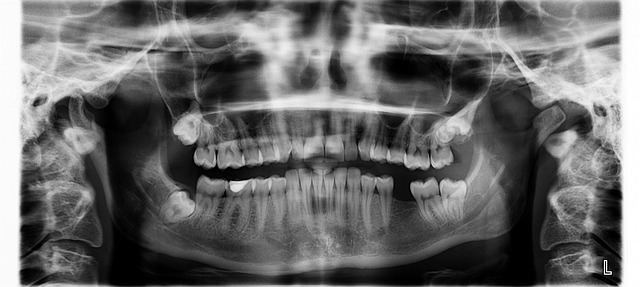Best Dental Implant Options and Benefits for Seniors in the United States 2025
Dental implants can improve seniors' quality of life by restoring function and appearance. For older adults facing tooth loss, learn implant options, benefits, candidacy factors, recovery expectations, insurance considerations, and maintenance to guide informed oral-health decisions in 2025.

What Are Dental Implants and Why Are They Ideal for Seniors?
Dental implants are small, screw-shaped posts typically made of titanium that are surgically inserted into the jawbone. They act as artificial tooth roots, providing a strong foundation for replacement teeth such as crowns, bridges, or implant-supported dentures. The unique process called osseointegration allows the implant to fuse securely with the bone, creating a stable and durable base that closely mimics natural teeth in both look and function.
For seniors, titanium implants are generally considered the best option due to their proven biocompatibility and longevity. Unlike removable dentures, implants do not require adhesives and offer enhanced chewing ability and speech clarity, which contribute to greater comfort and confidence.
Who Is a Good Candidate for Dental Implants Among Seniors?
Age alone is not a barrier to receiving dental implants. What matters most is the individual’s overall oral and physical health. Ideal senior candidates usually have:
- Healthy gums free from periodontal disease
- Sufficient jawbone density to support implant anchoring
- Generally good systemic health and well-managed chronic conditions (e.g., diabetes, heart disease)
- A commitment to maintaining consistent oral hygiene
Specialized dental evaluations can determine bone quality and the gum condition to assess suitability. Some seniors may require preparatory treatments like bone grafts to enhance jawbone mass before implants can be placed.
Key Benefits of Dental Implants for Seniors
Dental implants offer numerous advantages over traditional tooth replacement methods, especially for older adults:
- Improved chewing and speech ability: Implants provide a stable biting surface comparable to natural teeth.
- Facial structure support: Implants help preserve the jawbone and prevent the sunken facial appearance often caused by missing teeth.
- Prevention of bone loss: By stimulating the jawbone, implants reduce the bone resorption that typically occurs after tooth loss.
- Enhanced oral hygiene and health: Implants allow easier cleaning than dentures and do not cause gum irritation from adhesives.
- Long-lasting and durable solution: Dental implants can last decades with proper care, providing a permanent alternative to removable prosthetics.
- Boosted self-confidence: Restoring a full, natural-looking smile can significantly improve self-esteem and social interactions.
Important Considerations Before Undergoing Implant Surgery for Seniors
Before committing to an implant procedure, seniors should carefully evaluate various factors that influence both success and comfort:
- Medical history and overall health: Chronic illnesses and medications affecting healing must be managed in collaboration with healthcare providers.
- Bone density and jaw condition: Insufficient bone may require augmentation or alternative implant techniques.
- Smoking: Tobacco use can impair gum health and significantly increase implant failure risk. Quitting smoking is strongly advised.
- Financial and time investment: Receiving implants involves multiple appointments over several months and may require budgeting for costs not fully covered by insurance.
- Maintenance commitments: Implants require meticulous home care and regular dental visits to ensure longevity.
What to Expect During Recovery from Dental Implant Surgery
The healing timeline for seniors typically extends over several phases:
- Initial healing: Usually takes 7 to 14 days following implant placement to allow gum tissue recovery.
- Osseointegration period: This critical phase, lasting 3 to 6 months, is when the titanium implant bonds securely with the jawbone.
- Follow-up care: Seniors will have multiple check-ups to monitor healing progress and to receive the final restoration (crown, bridge, or denture).
- Dietary adjustments: Soft foods are recommended initially, gradually reintroducing harder textures as healing advances.
- Oral hygiene: Maintaining rigorous cleaning habits is essential for preventing infection and inflammation around the implant.
Patience and adherence to post-operative care instructions greatly influence implant success.
Navigating Dental Insurance and Financial Options for Seniors in 2025
Many dental insurance plans in the United States may offer partial coverage for implants if classified as medically necessary rather than cosmetic. Coverage specifics, premiums, and allowances vary widely depending on the insurer and geographic location.
Popular insurers serving seniors with some degree of implant-related benefits include companies offering plans with features such as:
- No waiting periods for basic and some major dental services
- Coverage caps ranging into several thousand dollars annually
- Access to extensive provider networks across most states
Examples of such coverage providers include dental insurers known for senior-specific plans, although availability and terms vary by state. It is highly recommended that seniors thoroughly review their specific insurance plan details and verify what implant-related procedures are covered to estimate out-of-pocket expenses accurately.
Essential Maintenance and Lifestyle Tips for Seniors Post-Implants
To ensure the longevity of dental implants, seniors should:
- Schedule regular dental cleanings and exams, ideally every six months or as advised
- Maintain disciplined oral hygiene routines, including brushing twice daily and flossing
- Avoid excessive consumption of hard, sticky, or overly chewy foods that could damage restorations
- Refrain from smoking to prevent gum disease and implant complications
- Consult their dentist promptly if they notice discomfort, swelling, or loosening of the implant
Following these recommendations helps maintain both implant and overall oral health into advanced age.
Accessibility of Dental Implant Services Across the United States
Dental implant treatment options are widely available nationwide, but access may depend on geographic location, local dental specialists, and insurance coverage networks. Some areas have more extensive pools of qualified implant dentists and oral surgeons, facilitating shorter wait times and competitive pricing. Seniors should verify the availability of implant services and in-network providers within their communities to plan treatment conveniently.
Final Thoughts for Seniors Considering Dental Implants in 2025
Dental implants represent a transformative solution for seniors coping with tooth loss, offering benefits in function, aesthetics, and quality of life. Successful outcomes depend on individual health assessment, choosing the right implant type, understanding insurance coverage, and committing to proper care.
Seniors interested in dental implant options should engage in thorough consultations with experienced dental and medical professionals to assess candidacy, explore cost considerations, and develop personalized treatment plans.
Disclaimer
Prices, financing options, and insurance coverage for dental implants vary by location, provider, and plan. Readers should verify all financial and policy details directly with local dental practices and insurance companies. This article is intended for informational purposes and is not a substitute for professional medical advice.
Sources
- Aflac. Dental Implants for Seniors: What You Should Know. https://www.aflac.com/resources/dental-insurance/dental-implants-for-seniors.aspx
- SeniorLiving.org. Best Dental Plans for Seniors in 2025. https://www.seniorliving.org/insurance/dental/best/




